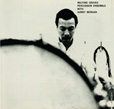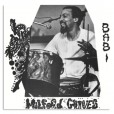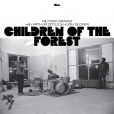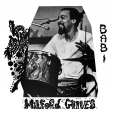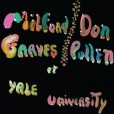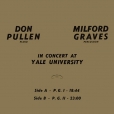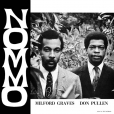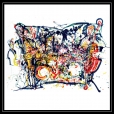Your basket is empty

‘The long-awaited first reissue of one of the most legendary albums in the history of free music. Recorded live in concert in 1976, when Graves’ trio with saxophonists Arthur Doyle and Hugh Glover was at the height of its powers, Bäbi is a testament to the absolutely unique approach the drummer had established for himself. He had reconfigured the drum kit, removing the second heads on all the drums and replacing the snare with two toms, which allowed him a much more nuanced sense of indirectness in his multi-directional adventures in time. The track Ba remains one of the most astonishing feats of percussion alchemy ever waxed, as funky as ten slap bassists and as free as an exploding grenade. Doyle and Glover are incendiary, too, inspired by Graves to new and shocking heights of achievement, their hoarse cries and whistling split-tones carried to thrilling plateaus on the energy of Graves’ hands and feet.
‘In 2017, Graves discovered a previously unknown tape in his archives featuring the same trio at its inception, in home recordings made seven years earlier in 1969. Graves pummels a huge gong while Glover plays an instrument that, after sounding like none ever known, turns out to be bass clarinet. Extreme music recorded up close and very hot, it is among the most searing sessions never heard. Until now.’
Milford Graves with Arthur Doyle and Hugh Glover, in the weeks leading up to their March 1976 recording of Bäbi.
Graves recorded these sessions himself in his legendary Queens basement laboratory and workshop. Outstandingly, the first two sides feature Graves on drums alongside Glover on klaxon and a Haitian one-note trumpet called a vaccine — “it’s important to keep that tribal possession-state feel… as in the Divine Horsemen of Haiti,” he says in the sleevenotes — and especially riveting, scorching tenor playing by Doyle, even by his own standards.
Bringing together two of the most prized, auratic LPs in all of free music, with music as vital and challenging today as it was more than five decades ago.
In Concert At Yale University, Vol. 1 was self-released on the duo’s Self-Reliance Program imprint in 1966. Copies are impossibly rare, especially the first few, which sported hand-painted covers by the musicians. (Several of these are displayed in the CD gatefold, together with a terrific photo of the pair selling LPs at a Nation of Islam convention.)
It was followed by Nommo, the next year.
For a performance at Yale University in New Haven, Connecticut, in spring of 1966, percussionist Milford Graves invited pianist Don Pullen to play duets. The two musicians had worked together in a band fronted by saxophonist and clarinettist Giusseppi Logan, with whom they had recorded two LPs in 1965 for ESP. Graves was already a daunting presence in free music. One step at a time, he was busy transforming the role of drumming in jazz, introducing a new way of dealing with unmetered time and accomplishing this task with technique that was almost inconceivable. His experience playing timbales in Latin bands had been formative, suggesting that the snare could be used as accent rather than beat-keeper, but by the mid 60s he’d worked up a holistic approach to sound and energy that was the most radical of his improvising percussion contemporaries.
For his part, this early setting finds Pullen at his most hard-hitting, and his pianism here lays to rest any allegations of Cecil Taylorism.
